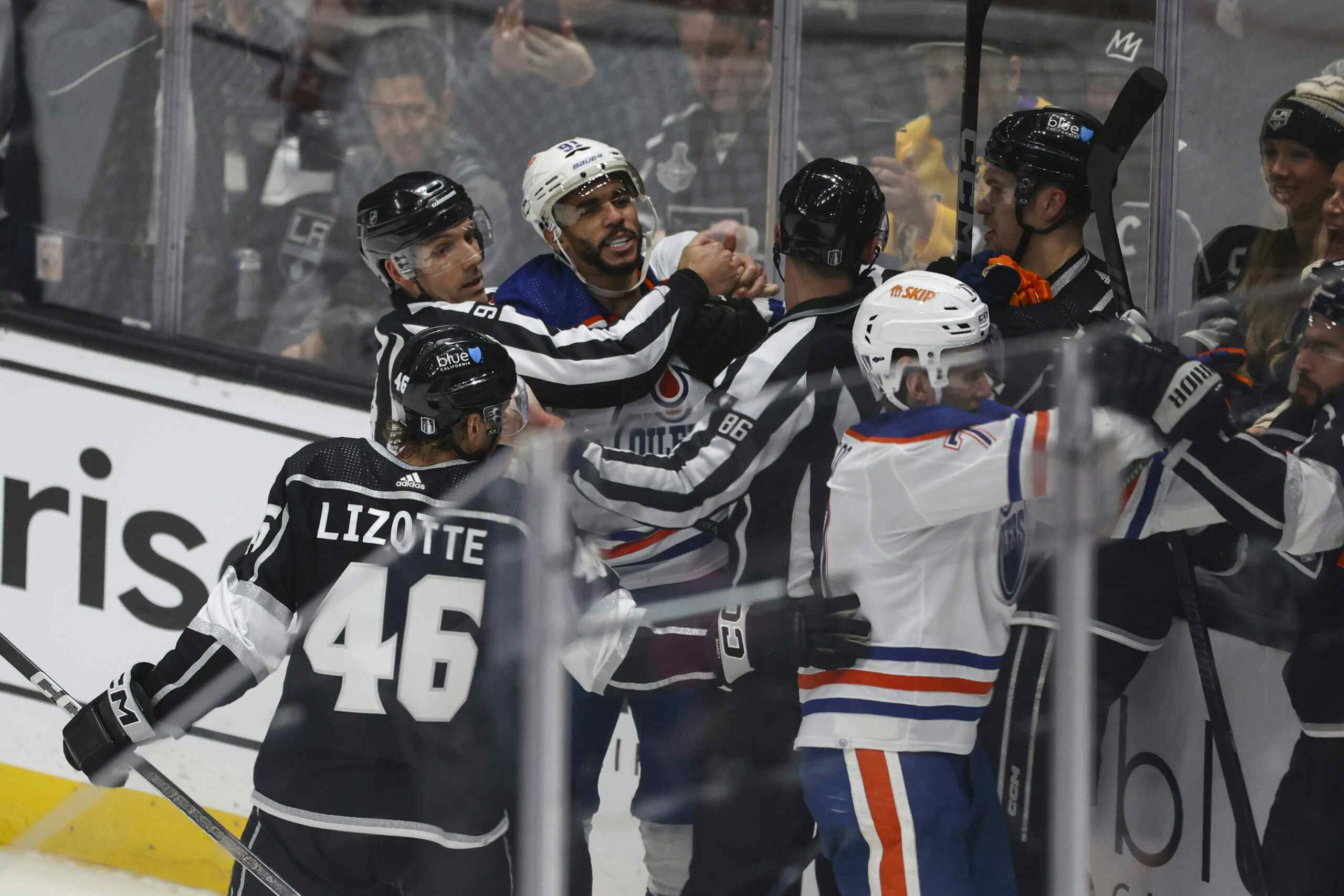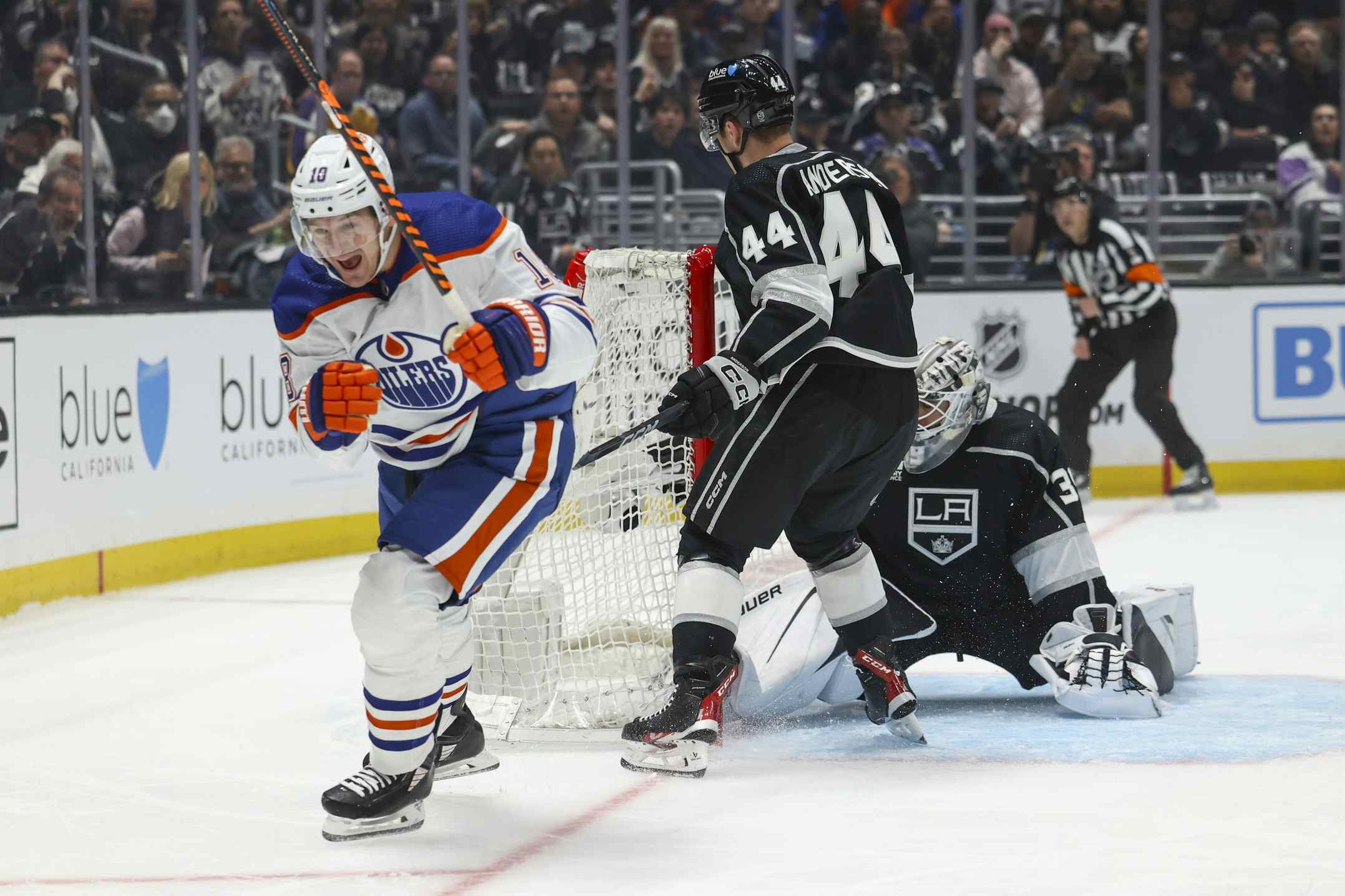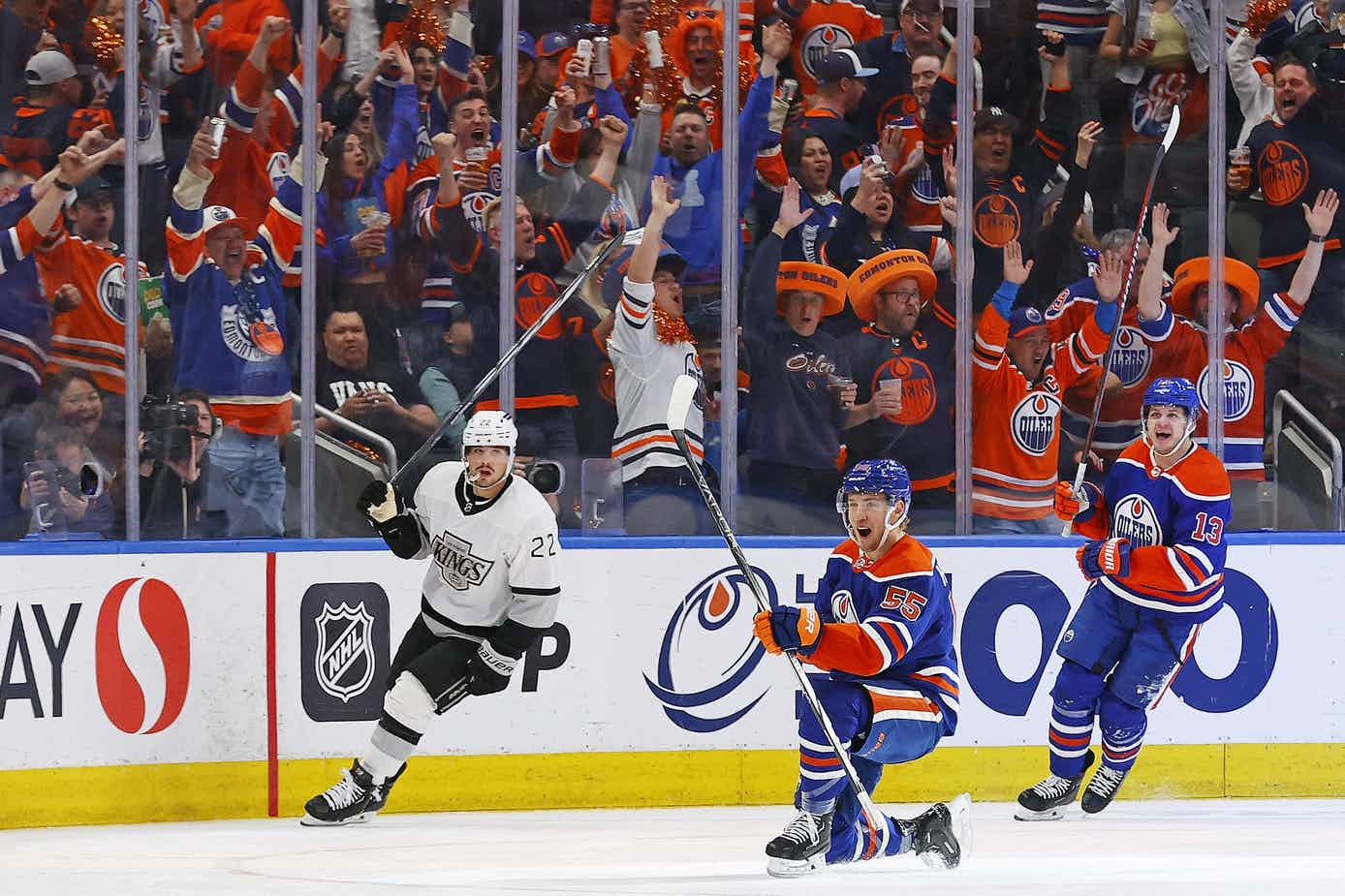The Curious Case of Cody Franson
By Cam Lewis
8 years agoIt’s been three weeks and Cody Franson doesn’t have a contract. If you search his name on Google, you’ll be flooded with reports that the huge, offensively minded defenceman is speaking with teams all around the league. Most recent reports suggest he’s in talks with the Boston Bruins, who recently shipped their best blue-liner, Dougie Hamilton, to the Calgary Flames. And of course, there’s talk that he’s open to come back to the Toronto Maple Leafs, the team he spent the majority of his career with before being dealt back to the Nashville Predators, who drafted him 79th overall in 2005.
Other than Franson, all of the big name defencemen are off the market now. There are a few solid veterans, some potential reclamation projects, but all of the big names – Sekera, Martin, Green, Beauchemin — were locked up on the first day of free agency. So what’s the deal with Franson? Is it him? Are his demands too high for the calibre of player he is? There appears to be interest around the league, but for whatever reason, teams seem to be skeptical of handing out a fat contract for Franson’s services.
That seems a little bizarre, because he may be the best defenceman of the entire bunch — and he still has room to improve.
THE NUMBERS
Let’s start by looking at what Franson brings to the table based on his numbers. At a basic glance of his stats sheet, he logs a decent amount of minutes and he produces offensively, largely due to success on the power play.
Since breaking into the league in 2009, Franson has played 400 games. In those games, he’s put up 35 goals and 134 assists, which puts him 36th among all defencemen in points scored over those six seasons. If that’s as far as you want to go into analysis, you can conclude that he’s a pretty good offensive defenceman because he’s produced at a high level throughout his career.
But what about his advanced stats? Looking at these numbers can do a better job at determining whether or not Franson himself actually makes the team better, as basic stats can be somewhat misleading. I mean, he’s clearly produced, but has be been a product of a strong offensive environment, or does he actually make the team better?
I’ll start with his second season in Toronto (2012-13) because that’s when he started working his way into a bigger role with the team, logging an average of 18:47 minutes of ice time per game. This was the year the Leafs made the playoffs despite having some of the ugliest advanced stats in the league. Many assumed that had this been a full season rather than one shortened due to a lockout, the Leafs’ poor underlying play would have caught up to them, and they would have fallen off a cliff, similar to the way they did in 2013-14. Anyways, that’s not the point. Franson had a pretty forgettable 45.5 even strength Corsi For percentage that season, but in fairness to him, it was a lot better than the numbers his teammates put up. When he wasn’t on the ice, the Leafs were a catastrophe, putting up a measly 43.6 Corsi For percentage. This is pretty impressive considering Franson faced the second most difficult competition on the team behind Dion Phaneuf, meaning the majority of his teammates faced weaker competition than him and put up inferior numbers.
The next season is when Franson became a top pairing defenceman. Was he actually a legitimate top pairing guy? Maybe not, but the Leafs played him like one and he fared admirably. His playing time was bumped up to 20:42 minutes per game and his zone starts shifted well in favour of the defensive zone. His 53.0 per cent defensive zone starts was the highest of his career to that point and the level of competition he faced remained similar to the level of competition he faced the year before. His 44.9 even strength Corsi For percentage was the lowest of his career, but like the year before, it was much better than the number his teammates put up. 2014-15 was more of the same. In 55 games with Toronto last season, his playing time spiked to 21:23 minutes per game, with an unimpressive 47.3 Corsi For percentage, but in relation to his teammates, he was strong.
See a trend here? I’ll finish this off looking at his stint with the Predators, which is an interesting situation because despite the fact many seem to think he was a bust in Nashville, his numbers were fantastic. In those 23 games, Franson was fed difficult competition and zone starts. He started 56.1 per cent of his shifts in the defensive zone, far and way the most in his career, and still managed a 57.0 Corsi For percentage at even strength. The first thought is that this is the result of playing in a strong system, but the 4.7 relative Corsi For percentage would suggest that Nashville was simply better with him on the ice than they were without him. Good numbers in relation to teammates, difficult zone starts and competition? While some credit has to be given to the team and the system, some also has to be given to Franson.
So what do all of these numbers mean? It’s really difficult to isolate and measure players individually in the NHL because hockey is such a fluid, team game. No matter what, a player’s statistics will be affected by a tremendous amount of factors that aren’t their fault individually, and aren’t entirely the result of their own doing. That’s why it’s important to augment stats with, you know, actually watching the game. But in this case, we have a player that pretty clearly manages to make his team better.
At no point in Cody Franson’s NHL career has he had a negative Corsi For percentage in relation to his teammates. Regardless of where he’s played, who he’s played with, who’s he’s played against, or where he’s started his shifts, the team is better when he’s on the ice than when he isn’t. This is because no matter what, Franson helps to produce a lot of offensive chances when he’s on the ice. In the same vein, his team also allows a lot of chances against when he’s on the ice. Despite that, he still manages to put up positive numbers in relation to his teammates. This suggests that his offensive prowess is so strong and has such a large impact on his team when he’s on the ice, that it manages to outweigh his inadequacies on the defensive side of the game. Ultimately, the goal of any player or team is to increase its odds of scoring over the opponent, and while Franson allows his fair share of chances against, what he brings to the table offensively seems to make up for it.
THE EYE TEST
So what about the eye test? By judging some opinions floating around different blogs and forums, I think it’s pretty easy to say that if there’s one thing Franson fails at, it’s the eye test. The guy is huge, but he doesn’t exactly have the greatest wheels in the league. On top of that, he isn’t overly physical, either. Every once in a while he’ll dish out a big hit, but he doesn’t do it nearly enough for him to be considered a physical defenceman. Unfortunately for Franson, those two things coupled with his size make him a weirdly unattractive player to the casual observer. Even though, like I mentioned above, he produces and makes his team better, his size and skill leave you asking for more. On top of that, as many Leaf fans will attest, Franson makes a lot of boneheaded decisions. Passes up the middle to nobody, soft giveaways, coupled with being a big, slow guy who doesn’t engage much physically and you have the epitome of a player who fails the eye test. To me, Franson is the type of player where the things he does well fly under the radar, while the things he does poorly stand out with a massive exclamation point. Yet despite that, he still makes his teams better regardless of how many ugly giveaways he makes, how many big hits he doesn’t make, and how much his skating resembles a turtle. When it’s all said and done, his pros manage to outweigh his cons and he makes the team he plays for better when he steps on the ice.
I don’t really have an explanation for why Franson hasn’t signed a contract yet. I’m not sure if it’s him being picky, or it’s GMs being skeptical to hand out big dollars and terms to a guy like him. All I can say is that whoever signs him is getting a player who can make a beautiful first pass, lay the occasional big hit, produce nicely offensively, log minutes, play in a variety of situations, and leave you wanting more, because although he’s a damn good player, his size and skill set suggests he can be even better. I get that there’s a cap crunch keeping teams from going hard in free agency, but if teams are willing to hand out dollars and term to Andrej Sekera, Mike Green, and Jeff Petry, there’s really no reason not to do the same for Cody Franson. When it’s all said and done, I suspect he’ll be the best player out of that bunch.
Recent articles from Cam Lewis





